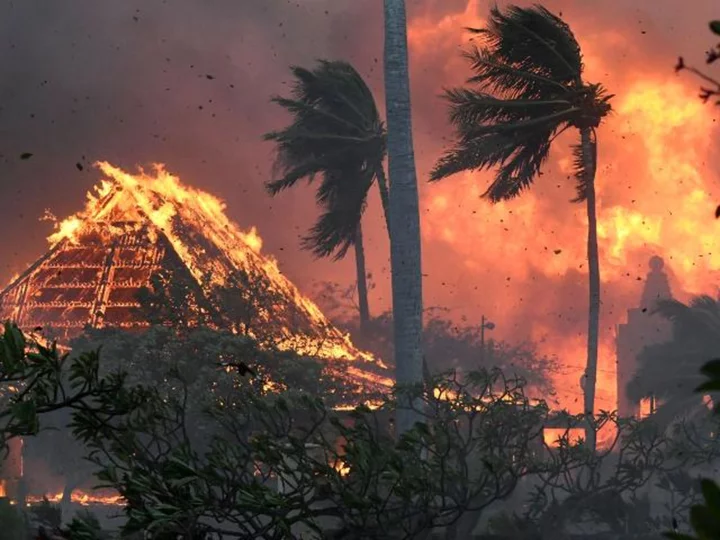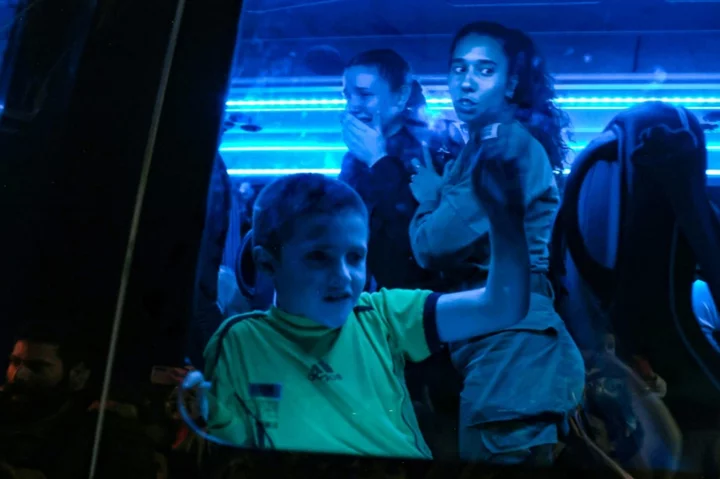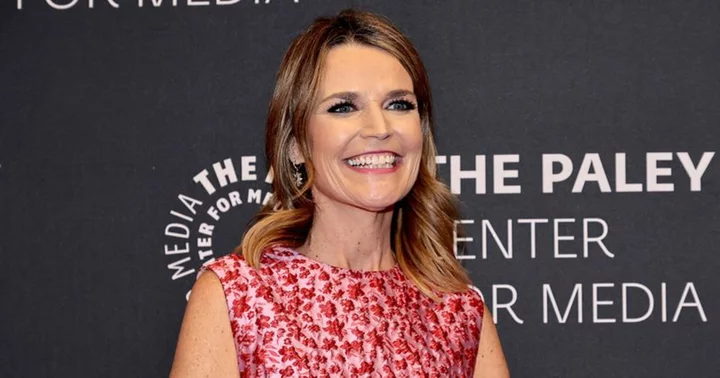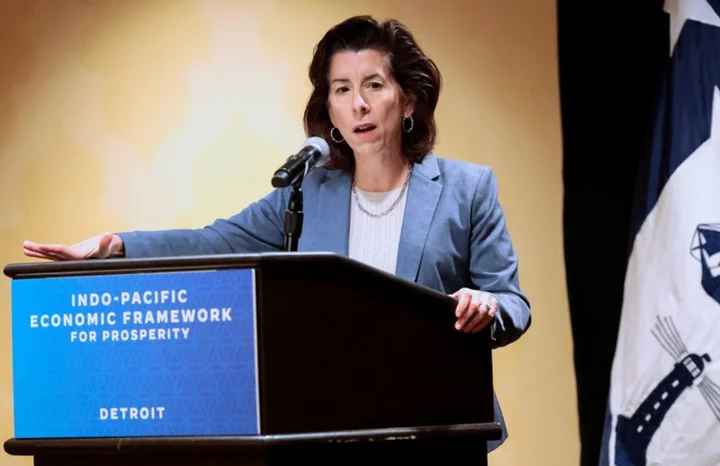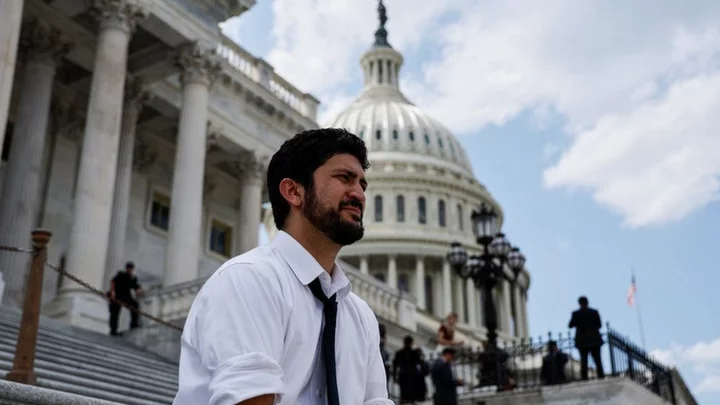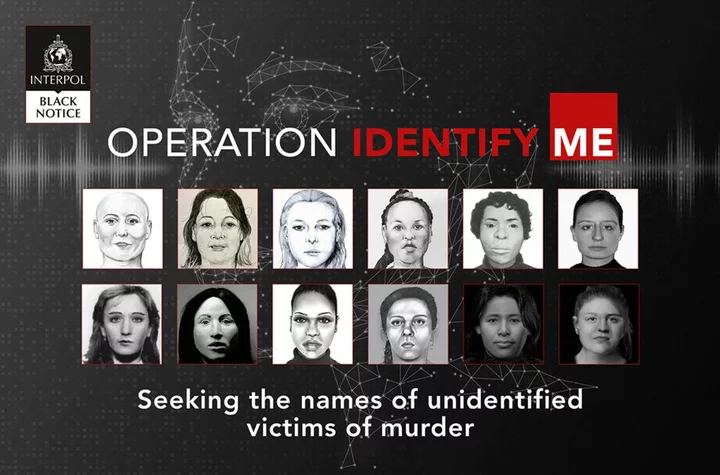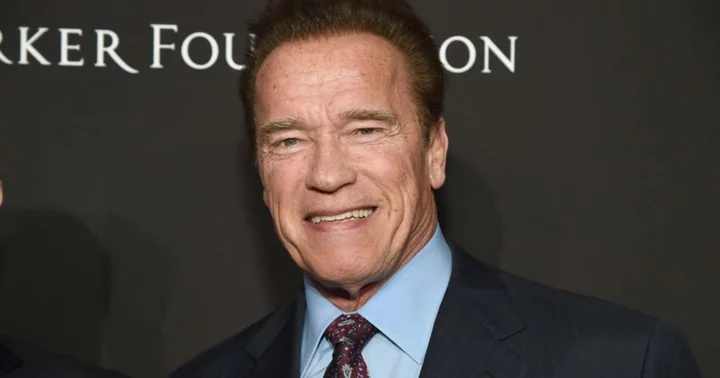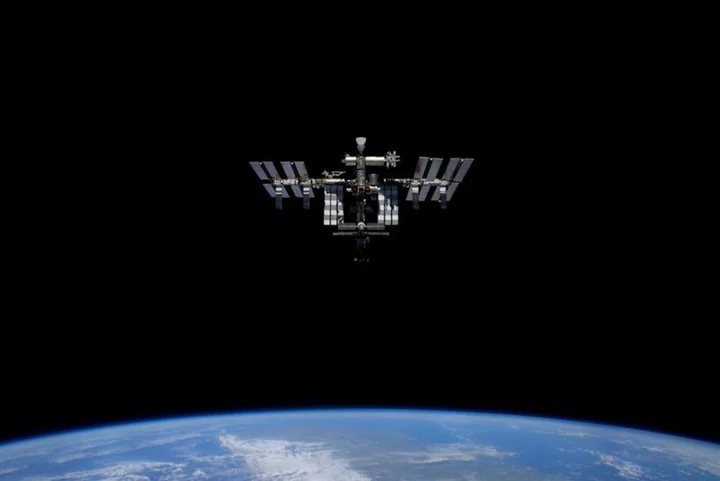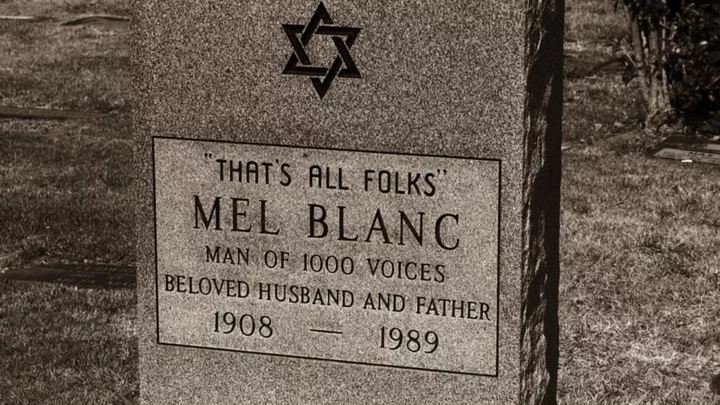President Joe Biden will journey Monday to fire-ravaged Maui to witness up close the devastation left by an inferno more than a week ago and assess for himself a government response that some residents initially found lacking.
Monday's trip will bring Biden to the scene of the deadliest American wildfire in more than 100 years. His initial response to the Maui wildfires drew criticism earlier this month, mainly from Republicans, who seized upon a lengthy period of public silence from the White House as the death toll rose.
With hundreds of people still unaccounted for, the death toll is still expected to rise, as emergency responders and cadaver dogs search through the incinerated wasteland for victims. Biden is planning to name a senior federal emergency official to oversee long-term recovery efforts during his visit.
The trip will provide Biden an opportunity to demonstrate in-person compassion for a community shaken by the disaster, and to dispel some of the early backlash at how he initially reacted, when photos of him on the beach in Delaware made for a striking split-screen as the scope of the tragedy came into focus. A curt "no comment" when he was asked about the death toll last Sunday fueled criticism that he was shrugging off the tragedy. In all, the president went almost five days without addressing the fires publicly.
Behind the scenes, however, planning was already underway for a presidential visit. In telephone conversations with Hawaii Gov. Josh Green, Biden sought to ensure the large footprint required for a presidential visit would not obstruct ongoing response and recovery efforts. He received assurances from Green that a trip on Monday would not interfere.
"I know how profoundly loss can impact a family and a community and I know nothing can replace the loss of life," Biden said in a statement Sunday. "I will do everything in my power to help Maui recover and rebuild from this tragedy," Biden continued, adding, "We are focused on respecting sacred lands, cultures, and traditions."
Since shortly after the brushfire began tearing through the historic town of Lahaina, Biden has sought to marshal the resources of the federal government to ensure the community is able to recover, including signing an emergency declaration and remaining in regular phone contact with state officials.
"If President Biden could just teleport himself over, he would've come here in five seconds," Green said at a news conference last week. "I've never seen such dedication in a president, who within six hours dedicated his time to determine that this was an emergency, and to commit full repair, full reconstruction for our people here in Hawaii."
Biden plans to speak with state officials, emergency responders and survivors on his visit. Precise details of the president's time on the ground were still being hammered out in the days ahead of the trip, but he is expected to survey the ash and debris the fire left behind.
The president will be joined Monday by first lady Jill Biden. The pair are interrupting a weeklong vacation at Lake Tahoe to fly to the Maui.
Biden will assign a senior FEMA official to coordinate a long-term federal response to wildfires in Maui when he visits the island Monday, a White House official said ahead of the trip.
Bob Fenton, an experienced disaster response official, will serve as the chief federal response coordinator. He has been on the ground in Hawaii since the day the fires began earlier this month.
"As the recovery moves into a next phase, the president has directed Mr. Fenton, who has been a leader in the response from the earliest hours, to make sure every member of this devastated community has access to everything the federal government can offer to heal and rebuild as fast as possible," the official said.
Biden and the first lady will take an aerial tour of the debris left behind by the fires and receive a tour of the historic town of Lahaina to view the damage firsthand.
And he'll meet with survivors, first responders, community members, and other officials and volunteers supporting the recovery efforts.
During the visit, Biden plans to reassure residents that the federal government will support their recovery, Federal Emergency Management Agency Administrator Deanne Criswell said Sunday.
"He's really going to be able to see the impact and just feel this devastation in this community and how widespread it is across this community and is going to be able to talk to families that have been impacted," said Criswell, who will be traveling with the president on Monday's trip.
"He's going to be able to reassure the people of Maui that the federal government is there to support them, but we're doing it in a way that's going to allow them to rebuild the way that they want to rebuild. I think that's the biggest message that he's going to be able to get across -- that we are here for them, and we are going to help them with their vision for how they want to rebuild," she said on CNN's "State of the Union."
Some on the island have questioned the speed of the government's response. In the days immediately following the fire, some residents relied on local networks of boats and cars to shuttle in help to the area. Since then, more robust assistance has arrived on the island.
As of Saturday, there were more than 1,000 federal personnel on the ground helping with ongoing recovery efforts and over $7 million in financial assistance had been provided to people affected. At that time, search and rescue teams had gone through 60% of the impacted area, according to Criswell.
She noted that the number of people in shelters has fallen "significantly" as they are moved into hotels, and that the next phase in the response will be debris removal efforts and a transition toward long-term recovery.
As residents and businesses embark on the rebuilding process, the US Small Business Administration is evaluating how its disaster relief programs can be tailored to the Hawaii recovery effort, SBA Administrator Isabella Guzman told CNN.
"We are on the ground and tracking needs to see how the whole of SBA can support communities impacted and disaster survivors," Guzman told CNN's Kayla Tausche.
Criswell also said she is hearing from people on the ground that they want to ensure the federal government supports their vision for the future.
"They just want to make sure that they're going to be able to rebuild the way they want to rebuild and that as the federal government comes in, that we're supporting them with their vision of what Lahaina is going to look like in the future," Criswell said.

